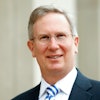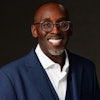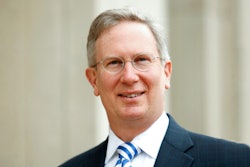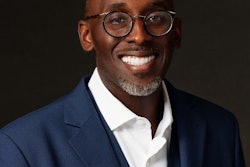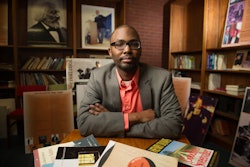Parting Words
Outgoing college presidents share thoughts about challenges facing HBCUs as well as the state of higher education.
By Cheryl D. Fields
The transition from spring to summer is one of higher education’s most exciting periods. It is a time when students who have toiled for years to achieve their academic goals finally get an opportunity to turn the tassel in front of their parents, peers and professors. It is when faculty members segue into summer modes of field research, sabbatical leave, or summer school activities. And it is when the remaining students head off to pursue their summer adventures.
In higher education, this period also is marked by another type of transition: the resignation and or retirement of some of our institutions’ senior leaders. This year is no exception. Among those who are stepping down from presidencies or chancellor posts to pursue retirement or other opportunities is a stellar group of African Americans. They include: Dr. Leonard Dawson, president of Voorhees College; Dr. Frederick Humphries, president of Florida A&M University; Dr. Joe Lee, president of Tougaloo College; Dr. Julius Nimmons, president of the University of the District of Columbia; and Dr. Gloria Randle Scott, president of Bennett College.
We invited these distinguished leaders to respond to one of six questions, each soliciting their parting thoughts about the state of higher education and what they think the next generation of postsecondary leaders must do to keep the doors of educational opportunity open for African Americans and all students. Their reflections provide insights for all of us to consider.
Crafting New Visions
for a New Century
Dr. Leonard E. Dawson was named president of Voorhees College in 1985. At the time, the Denmark, S.C., school was struggling under the weight of a $1.5 million deficit. Dawson set out not only to erase the deficit, but to expand enrollment, increase its academic offerings and grow the school’s endowment.
Today, Voorhees has an enrollment of 700, more than double what it was prior to Dawson’s tenure as president. Its endowment has tripled from $2.3 million to $7.5 million and according to school officials, the college has enjoyed a balanced budget for 16 consecutive years. The campus also has erected $10 million in new campus facilities, completed $5 million in renovations to existing buildings and has added new academic programs in computer science and geographic information systems.
Dawson intends to spend his retirement in Richmond, Va., where he says he’s looking forward to spending more time with his wife Dr. Laura Dawson.
BI: What, in your opinion, are the three most important priorities facing presidents of historically Black institutions?
Dawson: The overriding imperative for presidents of historically Black colleges continues to be establishing a sound and reliable funding base for the programs and services that the institution provides for their students. Unfortunately, only a handful of our institutions have large endowments and predictable resources of revenue of sufficient size to enable the chief executive to devote his/her attention to other more creative aspects of college leadership.
Another very important priority is the need to recruit and retain a top-notch, academically qualified faculty committed to the mission of the historically Black college. This is especially difficult in the areas of critical need such as the hard sciences and technology.
Finally, presidents of these colleges must find a way to articulate consistent, meaningful and relevant visions for the institutions consistent with the educational, social and moral imperatives — even in the midst of an ever-changing social and political climate.
Preparing for Today’s
Technological Society
Dr. Frederick S. Humphries stunned the campus, the state and even his closest associates when he announced his resignation from Florida A&M University earlier this year. For the past 16 years, he has been the backbone of the university, garnering praise for significantly increasing the university’s enrollment and attracting some of the brightest scholars in the nation.
When Humphries was appointed president in 1985, FAMU had only one National Achievement Scholar enrolled. Since 1988, however, FAMU has been among the nation’s top five recruiters, earning the top spot in 1992, 1995 and 1997. This year FAMU tied with Harvard as the No. 1 recruiter of National Achievement Scholars.
The university has experienced record-breaking enrollment under Humphries’ leadership. In 1985, enrollment was 5,100; today, it exceeds 12,200.
Humphries plans to take a year’s leave to study at Cambridge University in England. He will return to head up a policy research center at FAMU’s new law school in Orlando.
BI: Has being an African American president of a postsecondary institution in any way changed your outlook on education as an instrument of societal change? If so, how?
Humphries: No, my outlook on education as an instrument of societal change has not been altered as a result of serving as president of a postsecondary institution. My tenure has only served to reinforce the notion that education is the key to the mobility of African Americans in the social and technological sectors of society. Today, I believe that a more effective strategy must be employed to increase the participation of African Americans in underrepresented segments of higher education.
In order to develop the kind of talent that is needed, appropriate motivational methods and forums must be developed to make the case to youth that mastering science and technology are important to improving one’s quality of life. Developing expertise in these areas is key to advancing the quality of life for African Americans. It is apparent that we should participate in every way we can to enhance the growth, development and academic performance of students in kindergarten through the 12th grades.
We must not let the system dictate that minds are not suited for technical endeavors. We need to invoke all of the skills and expertise needed to aid students in K-12 to master mathematics, science and computer skills. They must be prepared to study science, engineering and technological fields to be serious players in the world of work.
The years have not changed my mind about education as a tool for societal change. What I knew and what my parents told me growing up in Apalachicola, Fla., is that education is the key now, then and into the future.
Making a Way
Dr. Joe A. Lee’s presidency at Tougaloo College, like that of many other historically Black college presidents, has been a constant struggle to make the most of limited resources while sustaining a healthy enrollment. During his six-year tenure, he has seen enrollment dip from 1,100 to 850 and back up to 950. Under his skillful leadership, the campus has managed to balance its budget for the past two years, and currently operates on an annual budget of $6 million.
Lee plans to remain in the Jackson, Miss., area during his retirement and says he’s looking forward to spending more time with his family.
BI: What, in your opinion are the three most important priorities facing presidents of historically Black institutions?
Lee: The three most important priorities facing presidents of historically Black colleges and universities in the 21st century are: fund raising in a very tight marketplace; restoring aging campus infrastructures; and maintaining the visibility of the historically Black college in the twilight of affirmative action. If HBCUs are to continue to have the societal impact that they enjoyed in the 20th century, these three factors will be critical to their existence.
No longer can these institutions depend on traditional sources of funding. Every agency and nonprofit organization in this country has invaded the little pool of financial support HBCUs once depended upon. These sources of support that we counted on to augment tuition and endowment income have gone the way of the dinosaurs. The challenge is clear and compelling: Our institutions must find additional support to provide scholarship aid for deserving students and to address deferred maintenance on many of our campuses.
There is no question about it, HBCUs still have a place in this society. There is still a need for institutions that can educate students in an environment free of the racial tensions that continue to plague our society. There is a need for a place that is warm, friendly, supportive and encouraging to those who want to focus on their futures and not be constantly reminded of their cultural difference. This becomes even more important in a society that has put on blinders when considering the need for affirmative action. It’s rather ironic to me that HBCUs practiced and maintained affirmative action before it was legislated. What is more ironic is that these institutions will once again lead the way, even in an obscure state of existence.
Grooming 21st Century African Americans
Dr. Julius F. Nimmons Jr. assumed the helm at the University of the District of Columbia in 1997, during a maelstrom of controversy. Faced with dramatic budget cuts imposed by Congress in response to the school’s $18.2 million deficit, the university released 225 of its faculty members, downsized its course offerings and sold its all-jazz radio station to C-SPAN — moves that left many faculty, students and members of the Washington community reeling. Nimmons, a historian and the university’s former provost and vice president of academic affairs, served as interim president for one year prior to being offered the position permanently. He then assumed the arduous task of restoring calm to a campus that many believed was headed for extinction.
Today, UDC, though still smaller that it was in the mid-1990s, is once again a bustling center of learning for students throughout the nation’s capital. Enrollment, which slumped below 5,000 in the mid-1990s is now around 5,300 (this figure excludes the roughly 15,000 students who attend noncredit, extension courses at the university).
Nimmons intends to take a one-year sabbatical leave before returning to the campus as a distinguished professor.
BI: What, in your opinion, are the three most important priorities facing presidents of historically Black institutions?
Nimmons: Undergirding the success of the entire Black postsecondary enterprise is and must remain a priority for African American communities. Over the past 10 years, powerful media influences have been directed at minority citizens, particularly our young people, causing them to behave in ways that are antithetical to their survival in the modern economy. Societal checks and balances which once were in place within these communities are crumbling, particularly as the economic disparity between upper class, educated and lower class undereducated minorities increases. HBCUs will have to take a lead position in instilling in minority students a strong sense of values, morals and character. They will have to become the primary catalyst for community-building and leadership development in inner-city communities. This, alone, can position minority institutions for greatness, in that they will have salvaged entire communities from isolation, despair and disengagement.
Many of our students have never had the kind of intensive nurturing support that young people naturally require as a part of the growing up process. They have not necessarily gotten the proper nurturing at home, where parents now are often too busy or otherwise engaged to pay them the kind of attention they require. Often the public schools they attend are overcrowded, have low expectations of them and neglect to instill a sense of worth in these kids. The majority of the HBCUs are small, intimate, highly supportive educational environments that allow the kind of personal interaction that fosters greater pride and self-esteem. While some students work well in highly populated environments — where students are identified only by a number — for many students, this simply does not work. The most powerful tools a young person can acquire are a sense of belonging, a sense of capability and a sense of contribution. The HBCUs are excellent in this area. They build community, confidence and strength in the student that endures a lifetime.
That said, I think the three most important priorities facing presidents of historically Black institutions are:
n Expanding the pipeline of talented minorities to assume faculty and staff positions, which are soon to become vacant in mass numbers. HBCUs have both an aging faculty and an aging staff. When competing for African American candidates at the doctorate level, HBCUs may not be able to match the salary and benefits packages offered by corporate America. The numbers are few and have remained relatively constant for many years now.
n Achieving fiscal stability and expansion of revenue base. The majority of HBCUs face tremendous fiscal challenges. We’ve got to think “outside of the box” and come up with radical and revolutionary strategies for our survival. We’ve got to do more within the minority communities we serve to build and sustain the fiscal strength of all of our organizations. Working together, this can be accomplished. My own institution, the University of the District of Columbia, is currently exploring joint-venture relationships with private sector minority and mainstream businesses. Given the vast intellectual resources of the university, as embodied in its faculty, students and staff, these can only be win-win relationships.
Certainly, if minority universities do not support minority business development, we truly are not fulfilling our duty to minority citizens. HBCUs must promote economic freedom, and the only way to do this is through support of minority business development.
n Building and maintaining technology infrastructure. HBCUs will come to be the best vehicles through which large numbers of minorities can come online with 21st century technologies. However, to equip HBCUs to play this critical role requires substantial investments of cash and access to knowledgeable personnel. Once the initial infrastructure is lain, you’ve got to remember to keep a steady reserve available for the continuous update of equipment, processes and trainer skills. Technology changes so rapidly. Most of us have turned over at least five generations of personal computers in the last 10 years. It is a costly endeavor, but one that cannot be dismissed. We must stop being fearful of technology and its costs and work with knowledgeable individuals and organizations to understand the dynamics and the benefits associated with technology. E-commerce will come upon us like a fast moving hurricane and, to date, minorities are not properly positioned to handle the ramifications of e-commerce. Without credit cards, debit cards, checking accounts, cash flow, computers or the Internet — we stand to be pushed even further out of the mainstream economy. HBCU’s must substantially beef up the training they provide in financial markets and financial instruments. This can no longer be limited to our business schools, but must be offered across the curricula. Our students must learn about money markets and how to access them. The gap in financial portfolios is already severe and is slated to expand, given the historical position of (Whites) in this country.
Phenomenal Women
When Dr. Gloria Randle Scott was named the 12th president of Greensboro, N.C.,’s Bennett College 14 years ago, she was only the second African American woman to head the all-female, historically Black institution. She came to the institution after working at a number of postsecondary institutions — large and small — and amassing a distinguished career as a research scientist, educator and administrator.
Scott’s achievements at Bennett include the establishment of partnerships with the Lydia Chimonyo School for Girls in Zimbabwe and the development of the Women’s Leadership Institute, which, among other things, is dedicated to the global collection and dissemination of research for and about women of color.
Today, Scott describes Bennett as an institution where “phenomenal women are produced.” She will spend the early part of her retirement completing a book, after which she intends to continue pursuing her research interests.
BI: Has being an African American president of a postsecondary institution in any way changed your outlook on education as an instrument of societal change? If so, how?
Scott: Having served in senior administrative capacities in postsecondary education for three decades and having been very active in the informal education world, I have the experience and privilege of knowing that education is THE primary instrument of (societal) change.
Postsecondary education is extremely important now, more than ever. Education from pre-school through doctoral study is important to creating societal change through knowledge infusion, through human development, through teaching tolerance and the need to balance wealth with human development and valuing. This is necessary in order to meet the goals of a democratic society — the “more perfect union” established in the preamble to the U.S. Constitution.
For me, serving as president has further demonstrated just how important a critical mass of an educated population — which includes educated African Americans — is to nurturing, extending, reforming and maintaining a democracy into the 21st century. Rather than dissolving into the “two nations” described (in the 1960s) by the Warren Commission.
Without education we will continue on a path to a racially focused, class-hardened, caste-driven, wealth-driven system from which it will be impossible to recover.
As the president of a historically Black college, I see the tremendous infusion that HBCUs have been responsible for in the creation of the middle income and/or middle class and/or upper income/upper class Blacks in America. Bennett College for Women has produced more than 6,000 women who hold major leadership roles throughout the world as well-educated professionals. These women produce children whose lives are enlightened and facilitate social justice. And these women are informed, participating citizens. Their education has provided the access to affecting societal change.
Every day over these (past) 14 years, I have been confronted with a moment in which I have recalled that John Dewey was correct — education and democracy are inextricably bound together.
Presidents are identified to play many roles and provide leadership many places. Through the many leadership roles that I have had in higher education professional organizations, in nonprofit organizations, in academic organizations, in advisory structures and in the local community it has been instructive to observe and try to interact to (create) change for the better. I’ve also witnessed just how much education does still determine societal change or regression.
As a child, my teachers and my family emphasized that for “Negroes in America” education was the only access route for advancement. I have watched this escalate and take on new forms, but essentially, it remains true.
© Copyright 2005 by DiverseEducation.com



